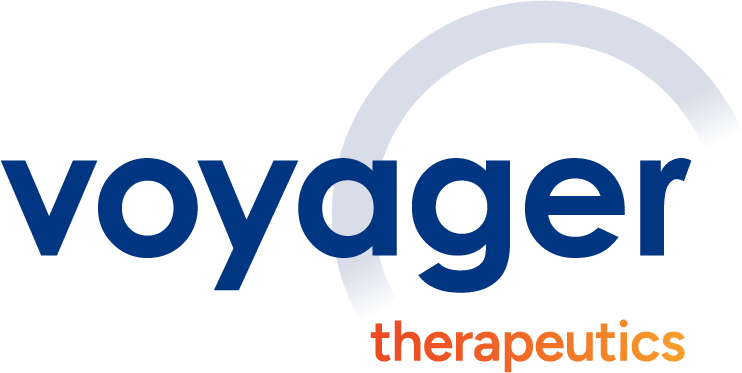Pipeline
Advancing transformative medicines
for neurological diseases.
Neurologic diseases – which are estimated to impact more than 1 billion people globally – represent a significant burden on those who suffer from them, on their families and communities, and on the healthcare system.
Thanks to significant advances in human genetics and genomics, we now understand the molecular causes of many neurological diseases and know how to target them.
Our pipeline includes medicines targeting the genetics underlying multiple neurological diseases.
MECHANISM / INDICATION
Research
IND-Enabling
Phase I
Phase II
Phase III
WHOLLY-OWNED PIPELINE
+ Anti-tau Antibody (VY7523) / Alzheimer’s Disease
+ Tau Silencing Gene Therapy (VY1706) (siRNA) / Alzheimer’s Disease
+ SOD1 Silencing Gene Therapy (siRNA) / ALS
Research
IND-Enabling
Phase I
Phase II
Phase III
PARTNERSHIPS (REIMBURSED)
Neurocrine (VYGR has 40% co/co option)
GBA1 Gene Therapy / Parkinson’s / Other
Neurocrine (VYGR has 50% co/co option)
Five Gene Therapy Programs / Undisclosed Diseases
Neurocrine
1 in IND-enabling; 4 undisclosed
Novartis
Undisclosed
CAPSID LICENSES
Alexion, AstraZeneca Rare Disease License
Four Gene Therapy Programs / SMA + CNS Diseases
Novartis Licenses
Patient Resources
One of Voyager’s core values is “Patients First.” This means we act with urgency and drive every decision with the knowledge that patients are waiting for us.
Photo: Klaus C., living with ALS, 2023
Partners



VY7523
anti-tau antibody for Alzheimer’s disease
Indication: Alzheimer’s disease
Modality: monoclonal antibody
Target: tau protein. Designed to block the spread of pathological tau, which is closely correlated with disease progression and cognitive decline in Alzheimer’s disease.
Key Data: We believe VY7523 is differentiated from other anti-tau antibodies based on the epitope it targets, which is located in the C-terminal rather than the N-terminal, mid-domain, or microtubule binding region (MTBR) region of the tau protein. At AAIC 2022, Voyager presented data demonstrating that an anti-tau antibody delivered intravenously inhibited the spread of pathological tau by >70% in a mouse seeding model.
Status: Single ascending dose trial underway.
VY7523
anti-tau antibody for Alzheimer’s disease
Indication: Alzheimer’s disease
Modality: monoclonal antibody
Target: tau protein. Designed to target unique C-terminal epitope and block the spread of pathological tau, which is closely correlated with disease progression and cognitive decline in Alzheimer’s disease.
Key Data: At AAIC 2022, Voyager presented data demonstrating that an anti-tau antibody delivered intravenously inhibited the spread of pathological tau by >70% in a mouse seeding model. In a single ascending dose study in healthy volunteers, data on VY7523 demonstrated safety, tolerability, and dose-proportional pharmacokinetics.
Status: Multiple ascending dose trial underway.
VY1706
tau silencing gene therapy program
Indication: Alzheimer’s disease
Modality: gene therapy: novel TRACER-derived capsid with vectorized anti-tau siRNA
Target: intracellular tau
Key Data: At ADPD 2025, Voyager presented data demonstrating that a single IV administration of a tau silencing gene therapy candidate in a non-human primate (NHP) model was well-tolerated and resulted in dose-dependent reductions of tau mRNA levels (44%-73%) and tau protein levels (27%-55%) across the brain.
Status: IND anticipated in 2026
Vectorized anti-amyloid antibody program
Modality: gene therapy: novel TRACER-derived capsid with vectorized anti-A beta amyloid antibody
Target: amyloid plaques
Status: Early preclinical research
SOD1 silencing gene therapy for Amyotrophic Lateral Sclerosis (ALS)
Indication: Amyotrophic Lateral Sclerosis (ALS)
Modality: gene therapy: novel TRACER-derived capsid with vectorized anti-SOD1 siRNA
Target: superoxide dismutase 1 (SOD1); mutations in this gene can cause toxic gain of function.
Status: Exploring optimal payload options

